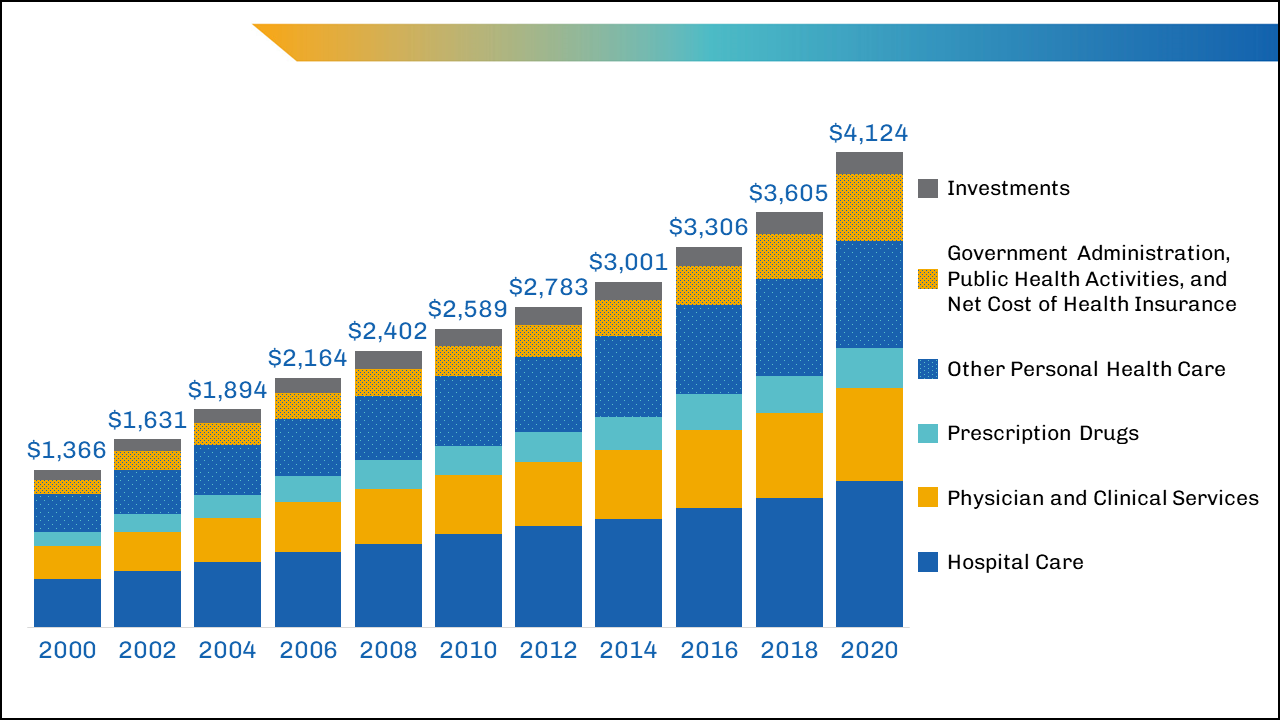Recognizing the Duty of Healthcare RCM in Enhancing Financial Performance and Person Contentment
Navigating the ins and outs of Medical care Revenue Cycle Administration (RCM) is essential for accomplishing optimal financial performance while simultaneously elevating client complete satisfaction. As we check out the transformative potential of RCM, concerns about its tactical implementation and future advancements bid, promising understandings that might redefine market standards and individual experiences alike.

Secret Parts of RCM
In the facility landscape of health care, Earnings Cycle Administration (RCM) is pivotal in ensuring financial security and operational performance. Individual enrollment and eligibility confirmation are foundational actions, ensuring that precise patient information is recorded and insurance coverage is confirmed prior to services are rendered.

Cost capture is one more important element, entailing the accurate recording of services given to patients. It makes certain that all billable services are made up, thereby taking full advantage of earnings potential. Concurrently, medical coding translates patient experiences right into standard codes, which are vital for billing and governing conformity.
Claims submission and administration adhere to, involving the preparation and submission of cases to payers. This procedure requires precise interest to information to minimize mistakes and stop hold-ups. Rejection monitoring is an aggressive approach to resolve and solve refuted cases, safeguarding income streams.
Last but not least, settlement uploading and person collections finish the cycle, ensuring payments are precisely tape-recorded and superior equilibriums are pursued. Together, these components create a durable structure that supports the monetary and operational health and wellness of health care organizations.
Influence On Financial Efficiency
Effective Earnings Cycle Administration (RCM) considerably influences a health care organization's economic performance by enhancing capital and decreasing revenue leak. RCM includes the extensive billing and collection processes that guarantee healthcare providers effectively manage their economic deals from person enrollment to last repayment. By streamlining these procedures, organizations can lessen rejected insurance claims, accelerate payment cycles, and boost general economic wellness.
Monetary performance is improved through careful management of invoicing treatments, which involves precise coding and prompt submission of cases. This decreases the chance of insurance claim rejections and rejections, which can significantly impede revenue flow if not addressed immediately. Moreover, integrating innovative technology options promotes real-time tracking of insurance claims and monetary metrics, offering healthcare managers with the devices essential to make educated critical decisions.

Enhancing Client Contentment
While enhancing monetary efficiency is a key objective of Profits Cycle Monitoring (RCM), it also plays an essential duty in boosting patient complete satisfaction. Individuals today need openness, efficiency, and accuracy in their healthcare interactions. RCM systems improve these processes, offering individuals a seamless experience from appointment scheduling to settlement. By lowering administrative concerns, RCM allows doctor to focus much more on client care, which go to my blog directly improves person satisfaction.

RCM likewise enhances person fulfillment through efficient interaction. By maintaining a thorough database of individual details, RCM assists in improved interaction in between patients and health care providers, making sure people really feel notified and valued.
Approaches for Effective RCM
Achieving efficient Earnings Cycle Management (RCM) needs medical care organizations to apply a set of tactical methods that make certain financial stability and operational effectiveness. One essential strategy is the fostering of technology-driven solutions, such as integrated software program systems that streamline invoicing procedures, lower mistakes, and boost data accuracy. These systems enable real-time tracking of financial metrics, permitting timely recognition and correction of inadequacies.
An additional approach is the standardization of procedures throughout the profits cycle. Healthcare RCM. This entails creating regular plans for individual enrollment, insurance coverage confirmation, and declares handling. By ensuring that all team follow these criteria, companies can accelerate and reduce inconsistencies payment collections
Staff training and growth additionally play an essential function in effective RCM. Trained workers can efficiently navigate intricate invoicing procedures and regulations, reducing rejections and improving cash circulation. Normal updates on policy changes and ideal practices assist keep a experienced and experienced labor force.
Future Trends in RCM
As health care companies improve their Earnings Cycle Administration (RCM) approaches with innovation and standard processes, interest is now transforming in the direction of the future patterns forming this crucial location. One significant pattern is Full Article the assimilation of man-made intelligence (AI) and artificial intelligence to automate complex tasks, such as insurance claims processing and predictive analytics. These technologies are expected to reduce mistakes, speed up purchase times, and supply data-driven insights for far better decision-making.
Additionally, the shift in the direction of value-based treatment proceeds to affect RCM practices - Healthcare RCM. Medical care suppliers are anticipated to increasingly concentrate on person outcomes and fulfillment, demanding RCM systems that can suit new reimbursement models. This shift will certainly call for even more comprehensive data collection and analysis to effectively report and determine on efficiency metrics
Interoperability is an additional arising top priority, as smooth information exchange in between diverse systems comes to be critical. Enhanced interoperability will facilitate more accurate patient information sharing, decreasing administrative concerns and enhancing the client experience.
Final Thought
Medical Care Profits Cycle Administration (RCM) considerably influences both financial performance and individual complete satisfaction by optimizing invoicing processes, ensuring accurate coding, and allowing timely insurance claims submission. Reliable RCM reduces revenue leak and accelerates cash flow, lowering claim rejections and accelerating repayments.
Browsing the ins and outs of Healthcare Profits Cycle Management (RCM) is necessary for achieving ideal economic performance while all at once boosting patient fulfillment. RCM incorporates the extensive invoicing and collection procedures that make certain healthcare carriers efficiently manage their monetary purchases from person registration to final repayment. By reducing administrative problems, RCM permits medical care providers to focus much more on individual treatment, which straight improves person contentment.
By maintaining an extensive database of client info, RCM assists in improved interaction in between patients and healthcare companies, making sure Look At This individuals really feel notified and valued.Medical Care Earnings Cycle Monitoring (RCM) dramatically affects both economic efficiency and client complete satisfaction by enhancing billing processes, ensuring precise coding, and enabling punctual insurance claims submission.